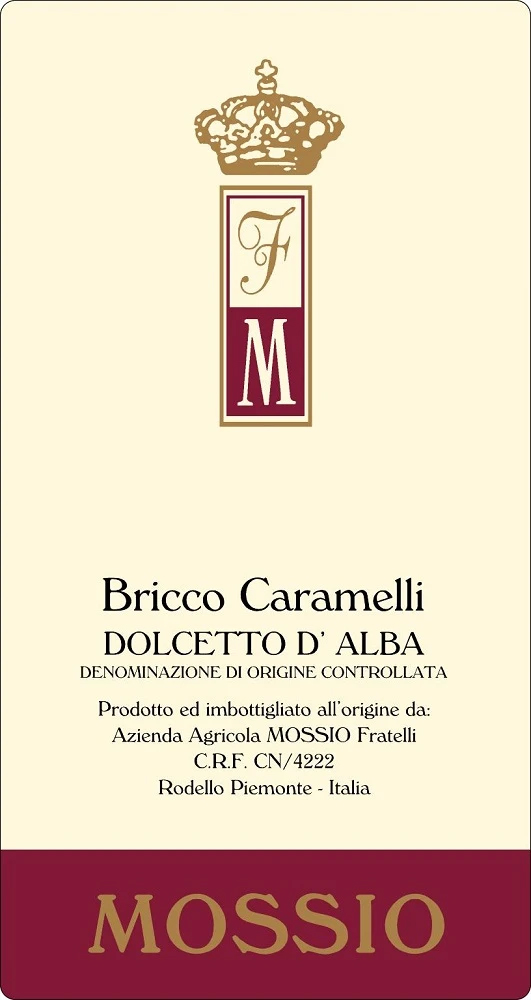Dolcetto d’Alba, “Bricco Caramelli”
Bricco translates as ‘hill top’ and the vineyard that is at the top of the Caramelli Hill is the place to be if you’re a Dolcetto vine. Perfect soil, perfect exposure, and the Mossio brothers are pick only the best grapes from this plot to go into this wine.
Appellation: Dolcetto d’Alba DOC
Type: Red, dry
Grape Variety: 100% Dolcetto
Color: Opaque ruby-red with violet reflections.
Bouquet: Intense with hints of plums, blackberry and red fruits, with a spiced finish.
Taste: Hints of plum, prune, blackberry and red fruit, spices and a balsamic flair. In the mouth it is soft and full with a nutty finish typical of Dolcetto. The rich texture of this wine makes it hard to believe it is done completely in stainless steel.
Alcohol: Approx. 14-14.5% Vol.
Serving temperature: 18° C (64º F)
Pairing: Bring on the appetizers, any meat roasted or brazed, any dishes with truffle, mushroom risotto, blue fish, and aged or seasoned cheeses.
Vineyard area: The Bricco Caramelli is a single, one-hectare, vineyard planted in the 1960s. It sits atop the Caramelli hill in Rodello, in the Langhe, Province of Cuneo.
Elevation: 480 meters a.s.l.
Exposure: Hilltop, well ventilated and sunny anytime during the day.
Soil: Sand 27%, Limestone 51%, Clay 22%.
Farming: Guyot and a balanced dry pruning, a careful cure in the moment of greater vegetative development and a radical thinning before and after the beginning of ripening. All work is manually executed to allow close-care and quality control. The only mechanized process is when any treatments (copper sulfate and pit sulfur) are called for, and for the control of the grass cover-crop.
Vines Per Hectare: 5,500
Harvest: Mid-September, in special crates, by hand.
Vinifcation: Fermentation takes place in steel vats with eight days of maceration on skins
Aging: Bottled in August without filtration and held in bottle for at least two months for refinement.
Average Bottles Produced: 5,000


